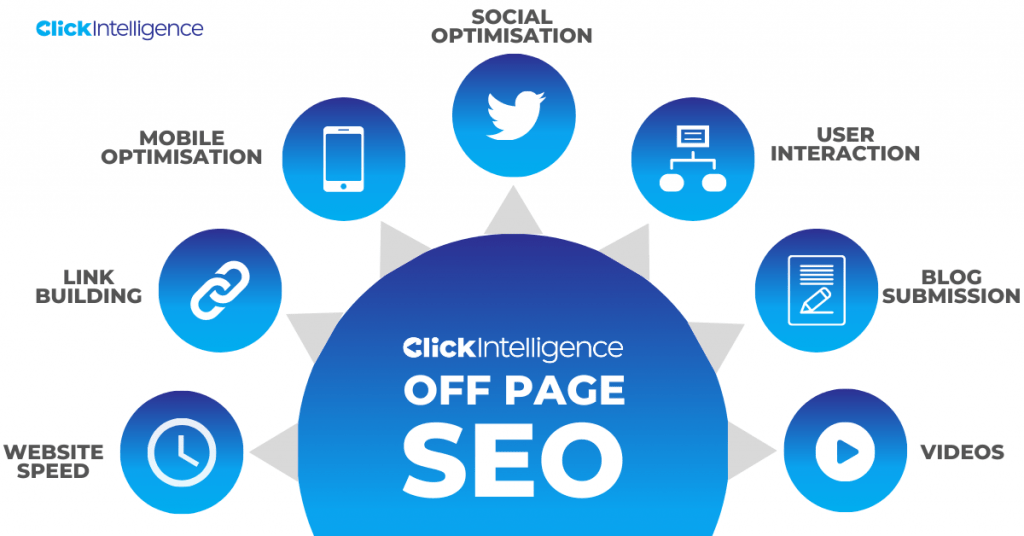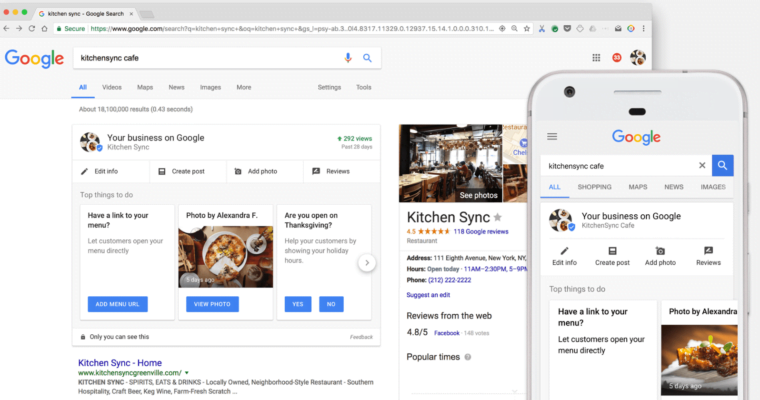The December 2025 Google Core Update Is Complete: What Does It All Mean?
When a Google core update is being rolled out, digital marketers everywhere eagerly wait to…
We all know that SEO is important; in fact, it’s so important that professionals like us spend a lot of time learning about new ranking factors, taking into account new research, and keeping up to date with industry news.
It can be a lot of work to know exactly what works and what doesn’t, but in general, SEO is broken into two main areas: on-page and off-page SEO. Broadly speaking, on-page SEO is anything you can do on your website that can affect your ranking factor. This includes using specific keywords, tags, metadataPut simply, metadata is data that describes data. It’s a labelling system designed to help machines and humans understand what is contained within a packet of data., and all of the other things that you can control.
With off-page SEO, it can be more difficult to control, but off-page SEO is just as important as on-page SEO, so it’s worth building a page SEO strategy to get it right.
Off-page SEO is the search engine optimisation you will do to help get your website visible on the search engine results page (SERP), preferably on the first page of the SERP so that your traffic will increase.
There are a lot of factors that go into off page SEO, some are more in your control than others, but there are definitely ways to boost your advanced off page SEO rankings.

Building off-page SEO is all about building your authority in your industry and getting those all-important citationsA citation is a mention of your company, product, or service in an online publication. Citations increase the ranking of your site on search engines and backlinks.
This off page SEO tips checklist will help you to understand how each factor affects off-page SEO and what you can do to improve your SEO off page optimisation efforts. You want it to be fruitful and boost conversions on your website, whether you measure that in ad revenue, affiliates, sales, leads, or any other conversionA conversion is a desirable result on a website that leads to an action such as completing an order, filling out a form, or simply clicking on a link. methods.
It’s important yot note that these factors alone may not help to boost your off-page search engine rank, but together, if you follow the advice here on how to improve off page SEO you should see an improvement.
Perhaps one of the most important facts of off-page SEO is backlinks, getting linksHyperlinks, also known as links, are the connection points on a webpage that take you to other webpages. to your website from other websites. In very simple terms, the more backlinks you have to your website, generally, the more your domain authority will increase, and that should have a positive effect on your SERP rankings.
Like many things in SEO though, it’s not quite that easy, leading us onto the next piece of our checklist…
Just getting a lot of build links to your website isn’t the be-all and end-all of building positive SEO. In fact, having a lot of ‘toxic’ backlinks – links from poor quality websites or pieces of content – can actually have a negative effect on your SEO score.
There are plenty of ‘professional’ SEO experts who will sell you very low-quality links and link buildingLink building is a process of acquiring links pointing to your website. These links are obtained by creating content, participating in social media or commenting on other blogs. services, creating articles on very substandard websites, sometimes using text spinners that create barely-readable articles.
Google is clever, and Google knows these types of link building services exist, and they are quickly downgrading these sites. That’s why we only link build using websites with a domain authority score of 40 or over and using websites that are specific to your niche with do-follow rather than no-follow link tags.
We touched on relevancy above, but this is a hugely important factor to off-page SEO too. If you are working on link building by approaching websites and asking for backlinks, you’ll need to ensure they are relevant to your niche.
For example, if your website is about entrepreneurship, it might be worth approaching websites that have entrepreneur, leadership, and business-related leadership, but it probably wouldn’t be worth approaching a gardening website, for example.
This isn’t a hard and fast rule though, it might be worth approaching a gardening website and pitching an article about being a gardening entrepreneur, but you’ll need to make sure the angle is right.
This also true for the anchor textAnchor text is the text highlighted by a hyperlink. The words highlighted are crucial for SEO, informing Google’s crawling bots about the content of the site linked to. you use. Having the anchor text as your full URL or “click here” is less valuable than a more natural link such as: “this is the article text with a natural link put in”.
Moving away from link building, citations are a really important factor to build your authority, thus improving your off-page SEO by gaining natural links.
Citations come in many forms, but usually, you can track the times your business or brand is mentioned by name (in a positive way!), your address is searched, or your phone number is cited.
Brand mentions like this are collectively known as NAP citations (Name, Address, Phone) and help to show Google that your business is an authority in your industry. If you can get citations from other authority websites, this really helps to build your domain ranking factor.
Google My Business has become more important over the last few years for off-page SEO, and it’s one of the few places you actually have full control over.
Building your Google My Business page with relevant and up to date information is great for your audience as everything they need is there, including a link to your website and your Google Reviews. This will help your audience to decide if your business or brand is worth pursuing.

Social media is a type of off-page SEO, again another factor that is actually in your control, but it’s not as big of a factor as the rest.
Social media is important and a great way to share your content, but while sites such as Facebook and Twitter work great for PPC, it is platforms like YouTube that offer more potential with SEO. So, when you are building your social shares and social strategy, consider what is the best site to use.
Keeping up to date with the latest off page SEO techniques, both on-page and off-page, is a tough job. That’s why it’s always worth employing a professional service to help you get your off page SEO tactics right the first time, whether you need to improve off page SEO techniques for an ecommerce website, bricks and mortar business or even niche blog post site.
Our off page SEO services are thorough and professional. We’ll do a full on page and off page SEO audit to ensure that you are on the right track and that your website and business is appearing online correctly.
Without the correct tactics, your website doesn’t have a chance of appearing prominently on search engine results pages. Because if…
Are you struggling to think about what to write about for your content marketing efforts? It’s not an uncommon situation–particularly…
In recent years, the coronavirus pandemic and war in Ukraine have taken a significant toll on the world's finances. Add…